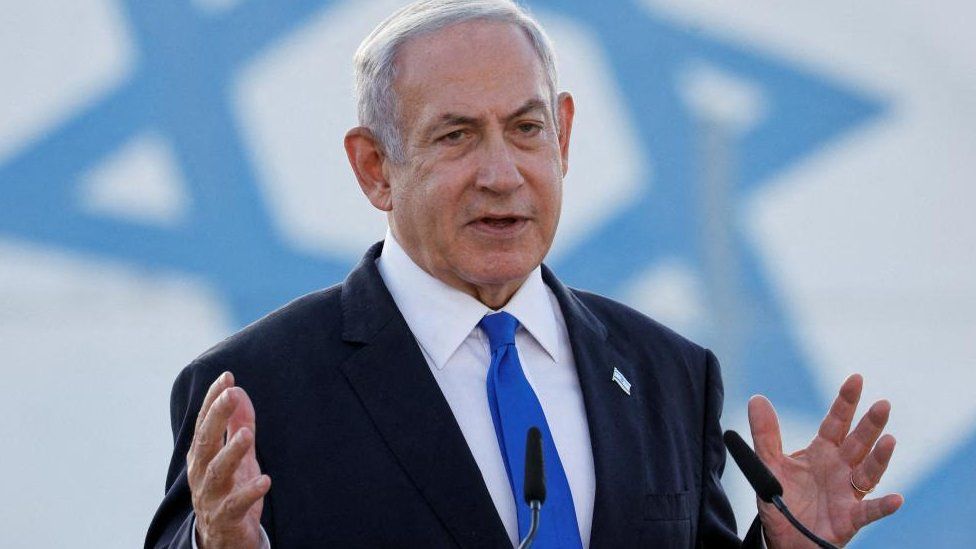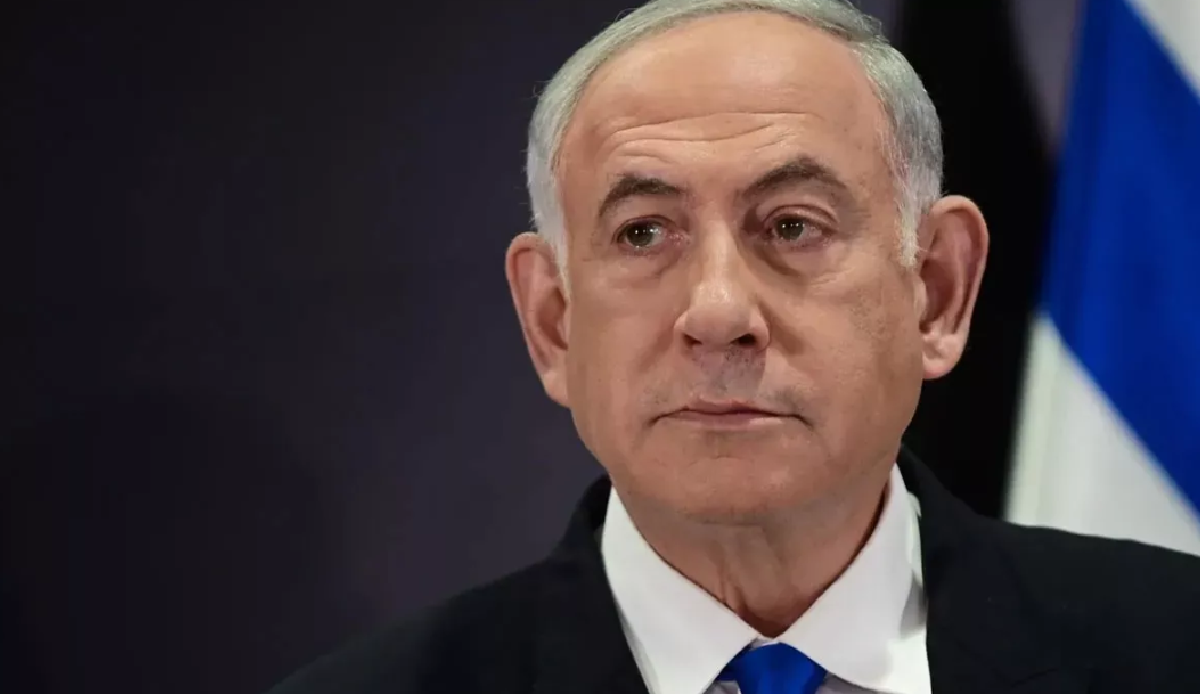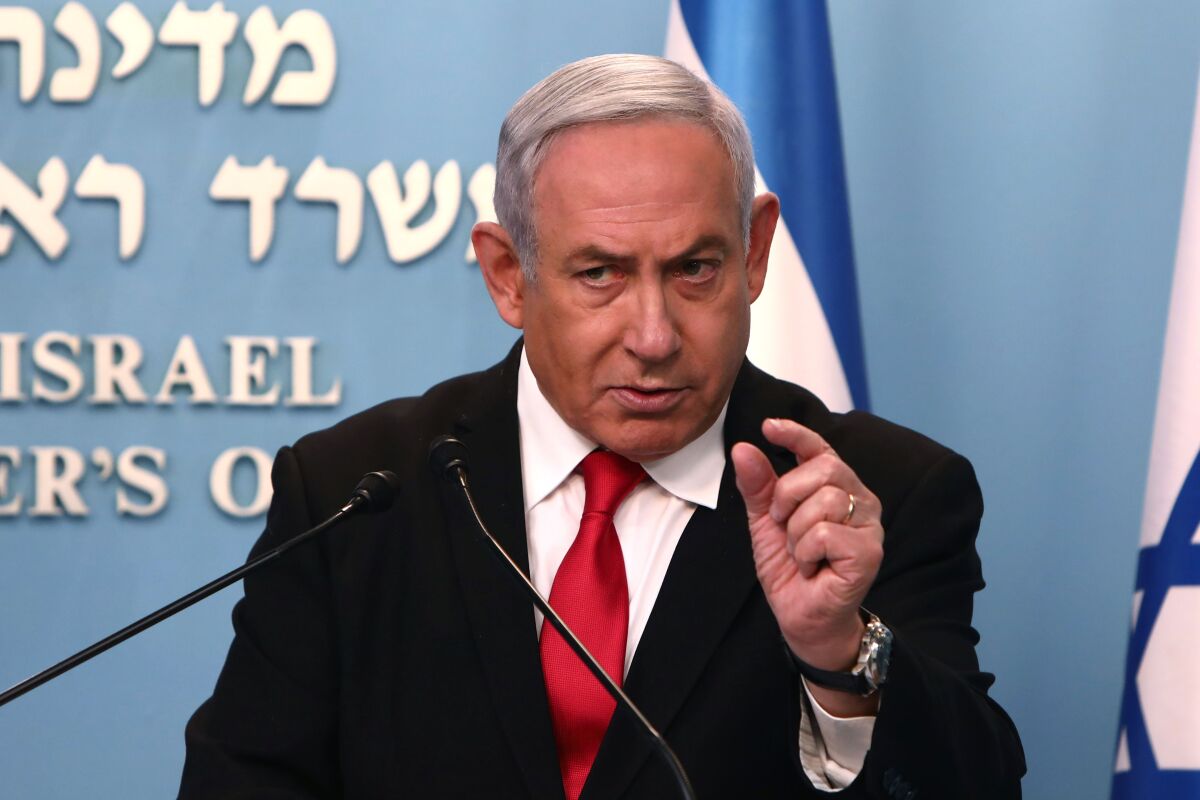Mr. Netanyahu’s surgery came amid what many consider to be Israel’s gravest domestic crisis since its founding 75 years ago. The turmoil has heaped pressure on Mr. Netanyahu.
A group of former army chiefs, police commissioners and intelligence agency directors accused him on Saturday night of dividing the country and endangering its security by advancing the judicial overhaul plan.
Netanyahu Fitted With Pacemaker for Heart Defect as Israel’s Turmoil Intensifies
Doctors at the Sheba Medical Center, east of Tel Aviv, said on Sunday morning that the unexpected procedure had been successful and that “the prime minister is doing very well.” But Mr. Netanyahu was expected to remain hospitalized until at least Monday, a spokesman for the hospital said.
- The government’s weekly cabinet meeting, originally scheduled for Sunday morning, was postponed until Monday, and it was unclear whether a vote in Parliament over the judicial overhaul would proceed on Monday as planned.
- The prime minister was hospitalized hours after an unusual surge in street protests, threats of labor strikes and warnings from thousands of military reservists that they would refuse to volunteer for military duty if the judicial overhaul goes ahead. Nevertheless, Mr. Netanyahu’s government appeared determined to press on with the plan on Sunday, even after his hospitalization.
- Before the debate began, thousands of people gathered at the Western Wall, a Jewish holy site in Jerusalem’s Old City, and held a mass prayer for national unity while public figures made last-ditch efforts to persuade the government to reach some consensus over the bill with the opposition.
Mr. Netanyahu’s government wants to limit the ways in which the Supreme Court can overrule government decisions. The prime minister has said the plan would improve democracy by giving elected lawmakers greater autonomy from unelected judges.
- But opponents say it will remove a key check on government overreach in a country that lacks a formal constitution and allow Mr. Netanyahu’s far-right ruling coalition — the most ultraconservative and ultranationalist in Israeli history — to create a less pluralist society.
- Critics also fear that Mr. Netanyahu, who is currently standing trial for corruption, might take advantage of a weakened Supreme Court to push through other changes that might undermine his prosecution. Mr. Netanyahu denies both the corruption charges and any claim that he would use his position to disrupt the trial.
- After a late-night emergency meeting, the country’s main labor union said it was considering a general strike, in rare coordination with the country’s largest alliance of business leaders. And a group representing 10,000 military reservists said its members would resign from military duty if the overhaul goes ahead without social consensus — adding their names to a smaller group of 1,000 Air Force reservists who made a similar threat on Friday.
- The reservists’ warnings have led to fears within the defense establishment about Israel’s military readiness. The Israel Defense Forces, or I.D.F., are heavily reliant on reservists, particularly the Air Force.
- Citing these fears, a group of 15 retired army chiefs, former police commissioners and former directors of the foreign and domestic intelligence agencies wrote a public letter to Mr. Netanyahu on Saturday night, calling him “the person directly responsible for the serious damage to the I.D.F. and Israel’s security.”
- At the time, Mr. Netanyahu’s office said he had experienced mild dizziness, and the doctors said he was suffering from dehydration after being out in the sun during a heat wave. But he was kept in the hospital overnight, underwent tests in the cardiac department and left with an implanted heart monitor.
The post Netanyahu Fitted With Pacemaker for Heart Defect as Israel’s Turmoil Intensifies appeared first on New York Times.
Israel judicial reform: Netanyahu in hospital ahead of key vote
Israeli Prime Minister Benjamin Netanyahu has had emergency surgery to fit a pacemaker, after being taken to hospital on Saturday night.
Doctors at Sheba Medical Centre said the procedure went well and he is not in a life-threatening condition.
Mr Netanyahu's hospitalisation comes ahead of a key vote in parliament on a contentious overhaul of the judiciary.
Protests against the reform have swept Israel, with many workers vowing to strike if the bill goes ahead.
In a video address ahead of the overnight surgery, Mr Netanyahu said he was feeling "excellent" but listening to his doctors.
There had been growing questions over his health after he was admitted to hospital last week supposedly suffering from dehydration.
The operation went smoothly "without any complications," Prof Roy Beinart from the Sheba Medical Center said, adding that Mr Netanyahu was "not in a life-threatening condition".
His office said Mr Netanyahu was expected to be discharged later on Sunday, but trips planned to Cyprus and Turkey would be rescheduled.
- Mr Netanyahu said he should be well enough to attend parliament after the procedure.
- The next 48 hours are expected to see a critical vote on his government's plans for changes to the judiciary.
- There have been months of protests in Israel over the reforms, which seek to limit the Supreme Court's powers.
The vote - expected to take place on Monday - will amount to a showdown between the hard-line religious-nationalist coalition and swathes of Israeli society. Parliament began debating the highly contested bill on Sunday.
One by one, Israeli opposition MPs are taking to the floor of the parliament chamber, pleading with the government to ditch its judicial reform plans.
The last few days have seen tens of thousands of protesters march from Tel Aviv to Jerusalem to oppose the justice system changes, with people filling the main highway.
Many protesters camped up at Sacher Park in Jerusalem, near the parliament, after the four-day protest march.
Three former army chiefs of staff and dozens of senior Israeli security officials signed a letter on Saturday criticising the government's judicial reform plans and supporting reservists.
"This legislation is destroying the common foundations of Israeli society, ripping the people apart, dismantling the army and inflicting fatal harm to Israel's security," the letter reads.
- Brothers in Arms, which represents 10,000 reservists, have voiced their frustration at the government's plans.
"We pledged to serve the kingdom and not the king," Mr Nave said. Appealing directly to Mr Netanyahu, he said: "You and only you are responsible for what is happening here. We had faith in the government but the government broke us.
"I will not volunteer to serve in a dictatorial state," Mr Nave added.
- Israel's Supreme Court is the only source of scrutiny on the government's use of its power.
- Mr Netanyahu's critics worry the reform will severely undermine Israel's democracy by weakening the judicial system.
But many worry the prime minister - who currently faces corruption charges, which he denies - is trying to use the judicial reform to thwart his own legal issues.
Mr Netanyahu vehemently denies such accusations."
___________________________________________________________________________________
_________________________________________________________________________________










No comments:
Post a Comment